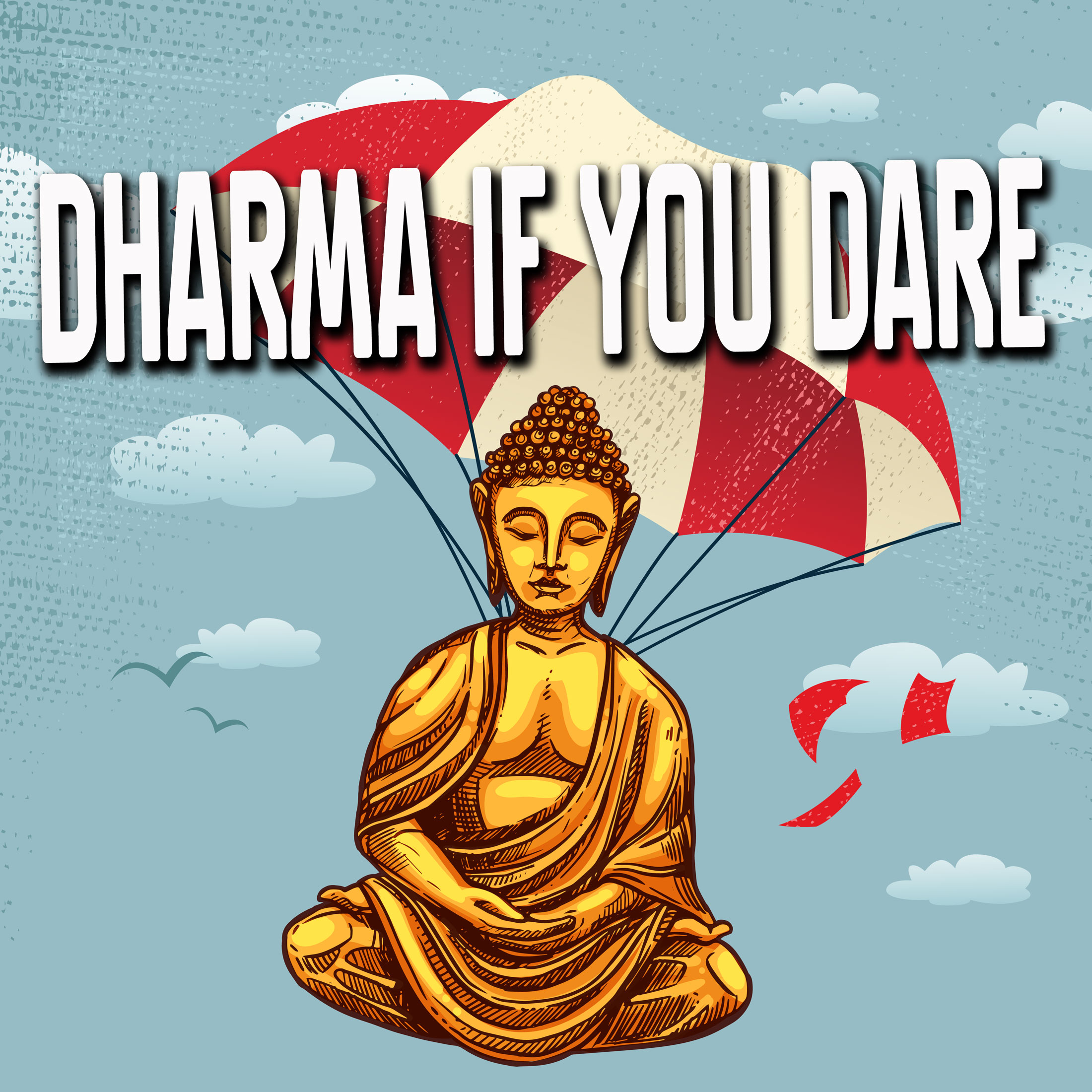Episodes

Friday Apr 15, 2011
The Nature of Addiction/Appetite (Part 2 of 5)
Friday Apr 15, 2011
Friday Apr 15, 2011
The nature of addiction is an attempt to escape the pain at the core of our being. Resisting the urge to give in rather than face the appetite or addiction takes patience and determination.
---
"If you want freedom you have to come to terms with being okay in the now doing nothing." -- Doug Duncan Sensei "All of your bad states are entirely your responsibility. Your state is totally under your control as long as you can exercise the mindfulness to be present in the moment. When you remain present you won't go to the addiction or to a negative mind state." "On the spiritual path, you're not fighting your addiction, you're fighting the inability to face the appetite or addiction. It takes patience and determination to sit through the state and study the pattern, rather than simply being driven by early childhood conditioning." From a public talk given in Winnipeg, Canada in September 2009

Sunday Feb 20, 2011
The Nature of Addiction/Appetite (Part 1 of 5)
Sunday Feb 20, 2011
Sunday Feb 20, 2011
The nature of addiction is an attempt to escape the pain at the core of our being. Resisting the urge to give in rather than face the appetite or addiction takes patience and determination.
--
"If you look at the nature of your consciousness, you're always one step ahead of yourself or perhaps one step behind yourself, but very rarely are you actually in this moment just as it is." -- Doug Duncan Sensei The nature of appetite or addiction is thinking, 'What's next?'" In our modern lifestyles, we are addicted to being busy, always going from one thing to next, seeking happiness in the next moment. This is an addictive pattern. Seeking cannot produce peace and contentment. Happiness cannot be found in the next moment. Only in breaking the pattern, the addiction to the immediate reward of the chemical rush, do we find that consciousness can reside pleasantly in this moment, undisturbed for a period of time. The cycle of addiction is rooted in a strong sense of survival in one's being. Rather than fighting against it, look at it with reason. Decide to meditate, to do nothing but rest peacefully in the moment for one or two hours a day. In meditating, one's habit is absent, so initially boredom will arise. Boredom is the result of the withdrawal from mental addiction, the addiction to 'What's going to happen next?' Boredom is followed by fear and anxiety, which have some survival value. So how do you marry the survival value of planning and organizing with the idea of being present in the moment? Stay tuned.

Saturday Dec 04, 2010
How to Get Comfortable When It's Not Really Possible (Part 3 of 3)
Saturday Dec 04, 2010
Saturday Dec 04, 2010
Part 3: You Cannot Let the Unwholesome Run You
The real work is to pay attention to and recognize what's going on in inside -- our mental states. We cannot let ourselves be ruled by subconscious conditioning.
---
In this last part of his talk, Doug Sensei gets down to the nitty-gritty. It's your work to do. We need to pay attention to and recognize what's going on in inside -- our mental states. And not let ourselves be ruled by subconscious conditioning. Mantras mentioned: Chenrezig (Jewel in the Lotus) mantra (for your heart): Om Mani Padme Hung Manjushri mantra (for your head): Om A Ra Pa Tsa Na Dhih Vajrapani (The Holder of the Diamond) mantra: Om Vajrapani Namah Hum Deity: Red Shinji, wrathful Red Manjushri: the most wrathful of all the deities in the mandala

Friday Nov 05, 2010
How to Get Comfortable When It's Not Really Possible (Part 2 of 3)
Friday Nov 05, 2010
Friday Nov 05, 2010
Part 2: Why Wait for Spring?
The real work is to pay attention to and recognize what's going on in inside -- our mental states. We cannot let ourselves be ruled by subconscious conditioning.
---
It's the basics for awakening. Recognize the wholesome for the wholesome. Recognize the unwholesome for the unwholesome. And you always know that the unwholesome state is unwholesome. You just aren't admitting it. Om ah ra pa tsa na dhih. Hail to the wisdom that is ripening. (Manjushri mantra) This talk was given by Doug Duncan Sensei on Aug. 14, 2010 at Clear Sky Center, BC, Canada.

Monday Oct 11, 2010
How to Get Comfortable When It's Not Really Possible (Part 1 of 3)
Monday Oct 11, 2010
Monday Oct 11, 2010
Part 1: Nobody's Perfect
The real work is to pay attention to and recognize what's going on in inside -- our mental states. We cannot let ourselves be ruled by subconscious conditioning.
---
"sabbe sankhara dukkha'ti" All conditioned phenomena are filled with suffering. This talk was given by Doug Duncan Sensei on Aug. 14, 2010 at Clear Sky Center, BC, Canada.

Saturday Aug 14, 2010
What is Karma?
Saturday Aug 14, 2010
Saturday Aug 14, 2010
Sensei answers questions and riffs energetically on cause and effect -- karma -- and a range of other subjects from the point of view of the Buddha (ultimate truth vs. relative truth)
---
Doug-sensei says: "Action is intention. Be very careful about this. There's no thing that you do at any moment ever that isn't intended. Every single thing you do is intended, whether you acknowledge the intention or not."
Reference: Prajna Paramita = The Heart Sutra <http://www.tricycle.com/dharma-talk/the-heart-sutra>
Relevant section: "O Shariputra, all dharmas are forms of emptiness, not born, not destroyed, Not stained, not pure; without loss, without gain. So in emptiness there is no form, no sensation, conception, discrimination, awareness. No eye, ear, nose, tongue, body, mind."
Ultimate vs. Relative Truth = The Buddhist Doctrine of Two Truths From p. 41 Luminous Mind, Kalu Rinpoche: "All things can be viewed according to two levels of reality: the relative or conventional level and the ultimate level. These two truths correspond to two points of view, two visions of reality: the relative truth or view is relatively or conventionally true but ultimately illusory, and the ultimate truth or view is definitively true, the authentic experience beyond all illusion. All samsaric perceptions are experiences of relative truth. Nirvana, which is beyond illusions and samsara's suffering, is the level of ultimate truth." http://en.wikipedia.org/wiki/Two_truths_doctrine

Saturday Jun 26, 2010
Your Journey is Upriver!
Saturday Jun 26, 2010
Saturday Jun 26, 2010
Sensei talks about going against the flow by meditating, reflecting and taking on the challenge to let go, abandon, renounce, and give up the idea that samsara is resolvable.
---
Doug Sensei says: "Your journey to awaken is upriver! Samsara is noted for being endless. You are not going to awaken by keep makin' the same choices, goin' down the same stream. Unless, of course, the choice you're making is to meditate, contemplate, reflect, study, listen to your mentor. But fundamentally you have to take the challenge -- not just to meditate or contemplate, but to take the challenge to go upriver for you! And no Buddha can do this for you." "It's not about rebelling against society. It's not about fixing or destroying society. It's irrelevant. Your challenges are irrelevant to what society is doing. Your challenge is to leave it behind, to walk on, to let go, to abandon, to renounce, to give up the idea that samsara is resolvable!" Term: skandhas For a good explanation: http://tibetanlama.com/buddhism/The_Five_Skhandas.asp
Text used: "Gems of Dharma, Jewels of Freedom," the classic handbook of Buddhism, by Gampopa (This podcast episode now contains the corrected sound file -- no sound dropouts.)

Thursday Jun 17, 2010
Get Off Your Royal.....!
Thursday Jun 17, 2010
Thursday Jun 17, 2010
Doug Sensei rapidly outlines the Buddhist teachings -- how to awaken -- giving life to them with direct commentary suited for people today.
---
"You're not looking at suffering clearly enough. You're drugging it out. You're in a dream state. Instead, you have to see the true nature of what you're attached to -- that it's impermanent, that it's subject to loss, that you can't ever own it, and that which owns it is itself a dream." Continuing with another talk from Dec. 2009 retreat, Doug Sensei rapidly outlines the Buddhist teachings -- how to awaken -- giving life to them with direct commentary suited for people today. An overview of the teachings from the book, "Gems of Dharma, Jewels of Freedom," the classic handbook of Buddhism by Gampopa, considered the 12th century forefather of the Kagyu traditions of Tibet. Translated by Ken and Katia Holmes in 1994, "according to the detailed explanations traditional to the Karma Kagyu Lineage".
See: http://www.samyeling.org/
Part 1: The Prime Cause -- The Enlightened Essence (having the awakened potential -- you have Buddha nature)
Part 2: The Basis -- A Precious Human Existence
Part 3: The Condition -- The Good Mentor
Part 4: The Means, The Mentors' Instruction Part
5: The Kaya of Perfect Buddhahood
Part 6: Non-Conceptual Enlightened Activity to Benefit Beings
Sensei starts out: "We're talking about samsara and nirvana. Samsara and nirvana are the same insofar as their actual nature is spaciousness. The form it takes is different according to the delusion. Insofar as you're subject to delusion you're in samsara. Insofar as you're not subject to delusion you're in nirvana. The nature of samsara is that it's repetitive -- it just keeps going round and round. The key characteristic is that in samsara because of the delusion you're subject to suffering. In nirvana you're not subject to suffering because you're not subject to the delusion. So then how do you get free from the delusion?" "The nature of the guru, the lama, the Buddha, is to point out blind spots. You don't need the lama to practice, to study, to reflect or contemplate on the Dharma. That you can do on your own. But what you can't do is see your blind spots." "Ignorance doesn't mean you're stupid. It means you're just not looking. From that POV, your neurosis is simply that you don't look past what you already know. It's the nature of the ego."

Wednesday Jun 09, 2010
The Four Impediments to Awakening (Part 3 of 3)
Wednesday Jun 09, 2010
Wednesday Jun 09, 2010
Part 3: Wake Up, Little Suzy
Teachings based on the book "Gems of Dharma, Jewels of Freedom" by Gampopa.
Your preferences are shaped, formed by conditioning. Ultimately everything is insubstantial and you need to see that.
---
Your parents have done their job, but they mentored you for a worldly existence. "The insubstantiality of the problem and the insubstantiality of the person experiencing the problem ends every problem. And by having meditative concentration, you just tell that little imp --- poof!" "Bliss, clarity, non-clinging is your birthright."
Buddhist term: Sambhogakaya

Tuesday May 04, 2010
The Four Impediments to Awakening (Part 2 of 3)
Tuesday May 04, 2010
Tuesday May 04, 2010
Teachings based on the book "Gems of Dharma, Jewels of Freedom" by Gampopa.
We are constantly seeking satisfaction. Merely accepting the cycle of getting temporary satisfaction and then seeking again is switching off. You need to transcend it instead.
---
Student question: "Don't we just accept that there is a cycle of getting temporary satisfaction and then seeking again?"
Sensei: "What are you taking refuge in, my friends?"
Concept: Switched-Off Potential (for Enlightenment)
Another incisive retreat talk!

